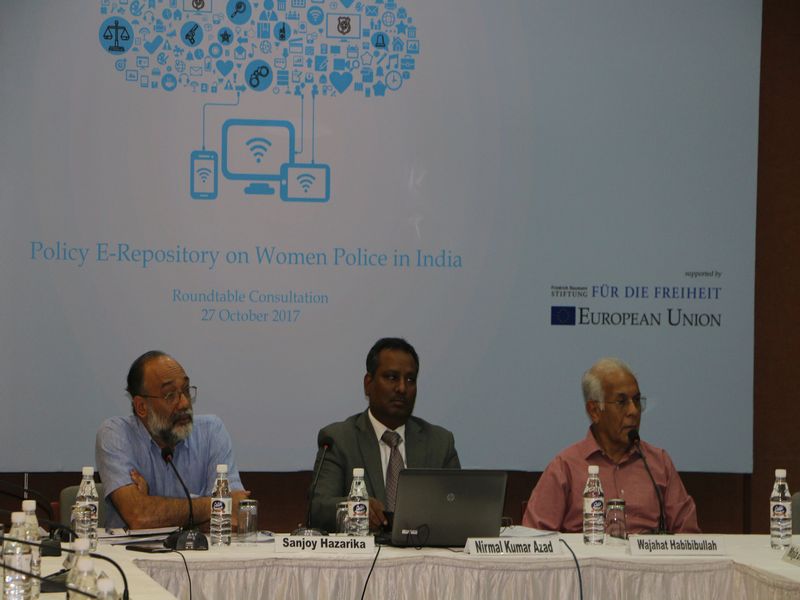CHRI holds consultation on a policy e-repository on women police in India

The Commonwealth Human Rights Initiative (CHRI) held a roundtable consultation on its latest resource “Policy E-Repository on Women in Police in India”.
The Policy E-repository is an online platform that provides information on relevant policy documents pertaining to recruitment, training, posting and other service conditions including any special duties assigned to women in police across all states and the union territories. The main idea of the repository is to facilitate state-wise tracking of policy developments aimed at improving gender diversity and mainstreaming within police departments, identify persistent gaps, highlight good practices at the state/national level, and inform policy discussions on the subject. CHRI gathered the information through Right to Information applications and will regularly update the repository.
Senior police officers from the states, civil society members and experts working on police reforms participated in the consultation held on October 27, 2017.
Sanjoy Hazarika, CHRI Director, said the e-repository seeks to better understand the condition of women in police and the need for systemic reform. "We hope for it to become a dynamic document that will not only present figures and data but will present the reality of how only a few police personnel have been recruited in India."
He said the e-repository has to be sustained and built and for that the partnership of police and responsible media persons will make it a “living entity.”
Dr N.K. Azad, Inspector General of Police, National Police Mission, Bureau of Police Research and Development (BPR&D) said India stands far behind in recruitment of women in police.
In 2012, there were 97,518 women police personnel in India. The number increased to 140,184 in 2016, said the senior police officer, adding that the figures show a “positive trend”, but “it is not enough.”
Maja Daruwala, Senior Advisor, CHRI, said that the necessity of good policing is to keep mind and eye on the future of policing and that can be done if women in the police are treated well.
Devika Prasad, Coordinator, Police Reforms Programme, CHRI, pointed to lack of information available in the public domain on policies pertaining to women in police, something police departments are mandated to provide as proactive disclosure under the Right to Information Act 2005, and that the repository seeks to fill this information gap as well as facilitate knowledge sharing across states.
Wajahat Habibullah, first Chief Information Commissioner of India and also Chairperson of CHRI’s Executive Committee, Meeran Chadha Borwankar, former Director General, BPR&D, Kanwaljit Deol, former Director General (Investigation) of the National Human Rights Commission (NHRC), Kamal Kumar, senior IPS officer and CHRI Executive Committee member and Anuradha Shankar, ADG (administration) in Bhopal were some of the police officers who attended the roundtable. Police officers from Kerala, Delhi, Madhya Pradesh, Meghalaya and Himachal Pradesh also took part in the consultation.